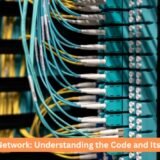The Unspoken Rules of Coding for Both Novice and Sage Developers
In the world of coding, learning syntax and frameworks is merely the first step. While documentation and tutorials can guide you through the practicalities, there is a wealth of wisdom in the “unspoken rules” that developers, both novice and seasoned, often learn through experience. These rules, which touch on everything from mindset to methodologies, can make a significant difference in a developer’s journey. They help avoid common pitfalls, streamline the development process, and ultimately shape a coder’s success and satisfaction in the field. This article delves into these unspoken rules, addressing what it takes to not only survive but thrive in the world of programming, no matter your level of experience.
Focus on Problem-Solving, Not Just Coding
Coding is often seen as the central skill developers need, but in reality, it is problem-solving that lies at the heart of software development. For novice developers, it’s easy to become overly focused on mastering a language or framework. While this is important, experienced developers know that coding is simply a tool used to solve problems. This subtle shift in perspective makes a significant difference.
Being able to break down a problem, identify the core issue, and then use the most appropriate technology to solve it is key. Experienced developers understand that sometimes the best solution is not the most complex or the most technologically impressive one, but the one that effectively solves the problem in a way that meets both user needs and project requirements. For both new and seasoned developers, constantly refining problem-solving skills is critical, and it requires a mindset that looks beyond the code and considers the broader context.
Consistency and Readability Over Cleverness
One of the biggest traps developers can fall into is writing overly complex or “clever” code. While it might feel rewarding to come up with a sophisticated algorithm or use esoteric features of a language, this often backfires when others (or even the original coder) need to revisit the code months or years later. The goal should be to write clear, readable, and maintainable code, which is often referred to as “self-documenting” code. This means that any developer, regardless of their familiarity with the project, should be able to understand what the code is doing without a deep dive into the details.
For novice developers, the temptation to showcase newfound knowledge by implementing intricate solutions can be strong. However, seasoned developers know that simplicity and consistency are more valuable in the long run. They favor code that adheres to established patterns and conventions, which makes it easier for teams to collaborate and maintain the codebase. Clear naming conventions, organized file structures, and regular comments can make a significant difference in the maintainability of a project, especially as it grows in size and complexity.
Learn to Read Code as Much as You Write It
Novice developers often focus solely on writing their own code, assuming that their growth as a developer depends solely on how much they practice writing code. However, experienced developers understand that reading code written by others is just as important. In fact, some argue that reading code helps developers grow faster than writing it because it exposes them to different styles, structures, and approaches to solving problems.
Reading code allows you to understand how other developers think and problem-solve, which in turn influences your own approach. Open-source projects are a treasure trove of learning opportunities for novice developers. By reading and understanding how experienced developers approach problem-solving, manage projects, and structure their code, novices can fast-track their development process. Sage developers, on the other hand, use this practice to stay up-to-date with new coding paradigms and emerging best practices. In both cases, reading code is a vital habit that should not be overlooked.
Embrace the Importance of Testing
One of the unspoken rules that separates novice developers from seasoned professionals is a deep appreciation for testing. While novice developers may view testing as an optional step or something that can be added later, experienced developers know that thorough testing is integral to a successful project. It ensures that the code functions as expected and helps catch bugs early in the development process.
Testing isn’t just about ensuring functionality; it’s also about creating robust systems that can handle unforeseen circumstances. Unit tests, integration tests, and end-to-end tests are all important tools in the developer’s arsenal. Writing tests as you develop, rather than as an afterthought, can save hours of debugging and reduce the chances of introducing new bugs when adding features. Experienced developers understand that testing leads to more reliable, maintainable, and scalable code.
Refactor Continuously
One of the unspoken truths in software development is that code is rarely perfect the first time it is written. This is why refactoring is a crucial part of the development process. Refactoring involves restructuring existing code without changing its external behavior, which improves its readability and reduces complexity.
For novice developers, the idea of constantly rewriting code may seem counterintuitive, but it is a necessary process for creating high-quality software. Refactoring allows developers to make their code more efficient, reduce duplication, and ensure that it adheres to best practices. It also makes it easier to implement future features and improvements.
Experienced developers know that refactoring is not a sign of failure but a sign of maturity in the coding process. It demonstrates a commitment to maintaining the quality of the codebase and ensuring that it can evolve as the project grows. Both novice and sage developers should incorporate regular refactoring into their workflow to keep their code clean and efficient.
Documentation is a Lifeline, Not a Chore
For many developers, especially those just starting, documentation is often seen as a tedious afterthought. However, experienced developers know that good documentation is essential, not just for others who might use or work on the project but for themselves when they return to the code after some time away.
Writing clear, concise documentation that explains how the code works, what each part does, and how to use the system as a whole ensures that the project remains understandable and maintainable in the long term. Both novice and sage developers should cultivate the habit of documenting as they go, rather than leaving it until the end. This habit not only makes life easier for others who might work on the project but also helps the developer clarify their thoughts and decisions during the coding process.
Don’t Reinvent the Wheel
There is a common tendency among developers, particularly those new to coding, to want to build everything from scratch. While this can be a good learning experience, it is not always the most efficient way to approach development. Experienced developers know that there is a wealth of libraries, frameworks, and tools available that can save time and effort.
The phrase “don’t reinvent the wheel” reminds developers to leverage existing resources when they can. This doesn’t mean that developers should stop innovating or avoid creating custom solutions when necessary, but it does mean being pragmatic about time and resources. Libraries and frameworks exist for a reason—they have been tested, optimized, and widely adopted, making them a safe choice for many projects.
For novice developers, learning to recognize when to build something from scratch versus when to use an existing solution is a skill that comes with experience. Sage developers, meanwhile, stay current with new tools and technologies that can further streamline their workflow.
Stay Humble and Open to Feedback
One of the most valuable unspoken rules of coding is that no matter how experienced a developer becomes, there is always more to learn. The world of technology moves quickly, and new languages, frameworks, and tools are constantly emerging. As such, even the most experienced developers remain students of the craft.
Humility and openness to feedback are essential traits for developers at every level. Novice developers may feel intimidated by their lack of experience, but embracing a mindset of constant learning and improvement is key to growth. Experienced developers, on the other hand, know that they must remain open to new ideas and approaches, even if they have been working in the field for years.
Code reviews, pair programming, and collaborative projects are opportunities to learn from others, whether you’re a novice or a sage developer. Accepting constructive criticism with grace and using it to improve your skills is a hallmark of a mature developer. In the end, coding is as much about communication and collaboration as it is about individual effort.
Conclusion
Coding is more than just mastering syntax and frameworks—it’s about developing a mindset and a set of practices that help developers solve problems, create maintainable code, and continuously improve their craft. The unspoken rules of coding, from focusing on problem-solving and readability to embracing testing, refactoring, and documentation, are vital for both novice and seasoned developers.
These rules, while often learned through experience, provide a framework for developers to thrive in an ever-evolving field. For those just starting out, paying attention to these principles can accelerate growth and avoid common pitfalls. For seasoned developers, adhering to these practices ensures that they remain adaptable, efficient, and collaborative. The journey of a developer is one of continuous learning, and these unspoken rules serve as guideposts along the way.
Read also: check





























































